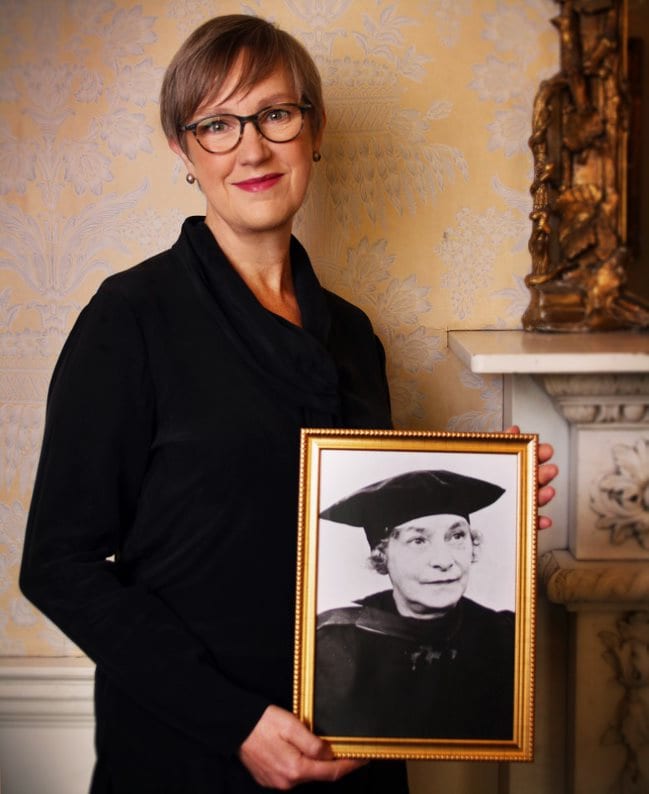To mark the 2018 centenary of the first British women winning the right to vote, we are honouring Bristol women who have changed our institution, and the world. From our first woman lecturer to the first British woman to have won a Nobel Prize, these activists, educators and agitators now take their rightful place on the walls of the Wills Memorial building – along with ten of the women in today’s University community to who continue to be inspired by their legacy.
 Winifred Shapland, Registrar of the University of Bristol, with Professor Judith Squires, Pro Vice-Chancellor
Winifred Shapland, Registrar of the University of Bristol, with Professor Judith Squires, Pro Vice-Chancellor
“Not only was Winfred the Registrar at the University of Bristol for nearly 20 years (1931 to 1950), she was the first female Registrar of any British university. Both are significant achievements. The Registrar of a university has overall responsibility for all its administrative
staff, enabling the university to deliver its core academic functions. Winfred held this, the most senior professional services role, at a time when universities were led almost exclusively by men. She was a pioneer in the world of higher education, and I am proud the University of Bristol showed its commitment to gender equality from its earliest days by appointing her to the role.
“Winifred was born and educated in Bristol and worked at the University for over 40 years. She joined the University as a secretary to Sir Isambard Owen, who became the first Vice-Chancellor when our Charter was granted in 1909. Eighteen years later she was appointed Secretary of the University and in 1931 became Registrar, shaping the University as it grew into the institution that we would recognise today.
“Winifred is a quietly inspiring figure whose contribution is worthy of celebration. She was a local woman, who dedicated her working life to one institution, but whose legacy rippled across the globe. At her retirement, friends, former colleagues and students from all over the world contributed to her testimonial. She was a professional woman who reached the highest ranks of the University, while displaying huge integrity and humility. At her memorial service, the then Vice-Chancellor noted that Winifred had ‘a rare gift of combining unswerving loyalty with complete candour.
“Her legacy is an important one, reflecting the University’s early and continuing commitment to gender equality and showing generations of women who followed her in higher education that no job is beyond their reach.”
________________________________________
The University of Bristol was the first higher education institution in England to welcome women on an equal basis to men, but our commitment to gender equality reaches far beyond this milestone. The wooden panels of the Great Hall in its Wills Memorial Building have been an all-male domain thanks to hosting portraits of its Vice-Chancellors. But now, thanks to a project specially-commissioned to mark 100 years since the first women in Britain won the right to vote, a series of ten portraits redresses the balance and celebrates notable Bristol women who have changed the institution – and, indeed, the world.
